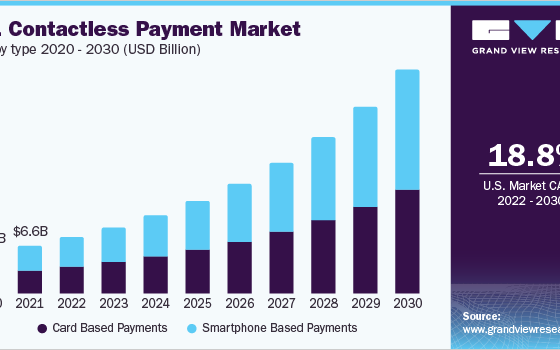Imagine your office is on fire. What are the things you would try to save first? Yes, belongings like mobiles, laptops, tablets, computer systems, and even servers come to our minds. However, what about your wallet or those paper documents-well? Not so important, right? This approach tells us the importance of data in today’s world. The information brings us more value, even greater than money. In the 21st century, it might be fair enough to compare data to the oil of the 18th century. It is an untapped valuable asset that everyone likes to protect. Just like fuel, data can also be extracted most appropriately to reap huge rewards.

Data is not just some digital signals or coding entities. It represents our economy, drives a nation’s financial decisions, offers smooth functionality, and even helps people stay secure. Without it, the progress of humanity would take a long halt.
1. Data and the world today

Data is everywhere, but why is it more important now than ever? It is the ability to store, manage, organize, retrieve, and share data that makes it as important as fuel. For instance, companies are taking surveys online from millions. They store the information in the cloud and then practice their technology based on the feedback. Things are analyzed, scaled, and speeded up using stored data.
In another example, we can see Google storing the information about your music playlist of Youtube videos. The algorithm of Google assesses your choice and pattern of listening to music. It then uses the data and recommends the song matching your personality and taste in music. It is not magic, but the correct and advanced use of data helps us listen to our favorite numbers even when we haven’t selected them. The process is called machine learning.
Some of the other examples of data creating magic include:
- Geographic location sharing data
- Online streaming data for entertainment
- Video calling with many participants by transferring data signals
- Mobile and internet banking
- Financial transactions using data about banks and accounts
- Virtual reality
- Machine learning
- Healthcare applications collecting data about our vitals
- On-demand applications
2. Data and AI

When conjugated with new tech modalities, data becomes more relentless. A sheer instance of this is data-driven artificial intelligence. Many enterprises worldwide are already shaping and implementing AI-based solutions in their core competencies. From seismic analysis to autonomous vehicles to genomic research and drug development, AI finds its usage in every field. It is also being utilized to enhance consumer experience and offer real-life-like digital tours.
3. Data sharing fuels the businesses
Data is not just stored; it is exchanged on a daily basis. This exchange includes information about products, customers, sales, and more. The process offers a great opportunity to companies for cross-selling, upselling, and improving customer experiences. Bounce rates are reducing, and retention rates are on the rise. Using the internal data with the external one, businesses find themselves in the center of a myriad of opportunities to develop new services, products, and solutions across various niches.
In the present digital age, a massive amount of information is being generated. Here, we are talking about numbers in zettabytes (1 zettabyte equals 1021 bytes). And this vast volume is not going to waste; it is being utilized proficiently by industries to the best effect. Businesses are incorporating disparate information into AI algorithms. They are manipulating customer behavior and understanding the journey of leads.
4. Data helps in new business models

Thinking out of the box has been the norm for industries to reach the zenith of corporate success. Data-driven business model innovation can be an effective way to create a ripple in the industry. We can take an example of the way Uber changed the transportation industry. And how about BookMyShow, which literally removed long queue lines at theaters. These businesses became popular as they introduced something new. And then, they acted on improving their services with features such as online payment, cash coupons, subscription plans, etc. These new-age models were possible thanks to the appropriate use of data.
5. Data helps in new business models
Gathering and appointing manpower once was the biggest challenge for the enterprise. But no more because data has helped improve operational efficiency by limiting the number of staff required to run a machine. The process helps organizations do more with the same or fewer resources. This has indeed resulted in enhanced productivity with cost-saving back in the picture.
Business owners are now having good visibility of their business metrics. After all, you can improve things only if you can measure them. Business owners and entrepreneurs are now aware of the numbers and can concentrate their operations accordingly. For instance, analytical data can provide managers or CEOs of companies with details about the invalid deductions of a month. They can then act on it and reduce those deductions to a minimum while enhancing the revenue cycle.
Data-driven analytics are helping businesses make informed decisions and improve efficiency with features such as :
- Expenses and profit details
- Insights on customers and their behavior
- Number of returning and new customers
- Extra expenses levied in a month
- Services offering better results
- Return on Investment details
- Revenue cycle management
- Errors detection in calculations
- Holiday and overtime monitoring
5. The future of Data

Talking about the prospects, the use of data will only increase in the coming years. Data is set to offer a huge array of novel growth choices. With advanced technologies like AI already ruling some industrial sectors, we can expect an explosion of protocols such as data-driven decision making, customer-facing experiences, automation, and in-depth virtual analysis.
The race to use maximum data and utilize it to the best effect is on. The competition is out there, and if a company is not participating, it is missing out on many opportunities. A crucial advantage for the largest contenders of data is their infrastructure to store data. This includes dedicated servers, server rooms, storage rooms, etc.
This gives the enterprises a direct entry into the future where they can uncover secret insights that are yet to be unfolded by their competitors.

 Add to favorites
Add to favorites









